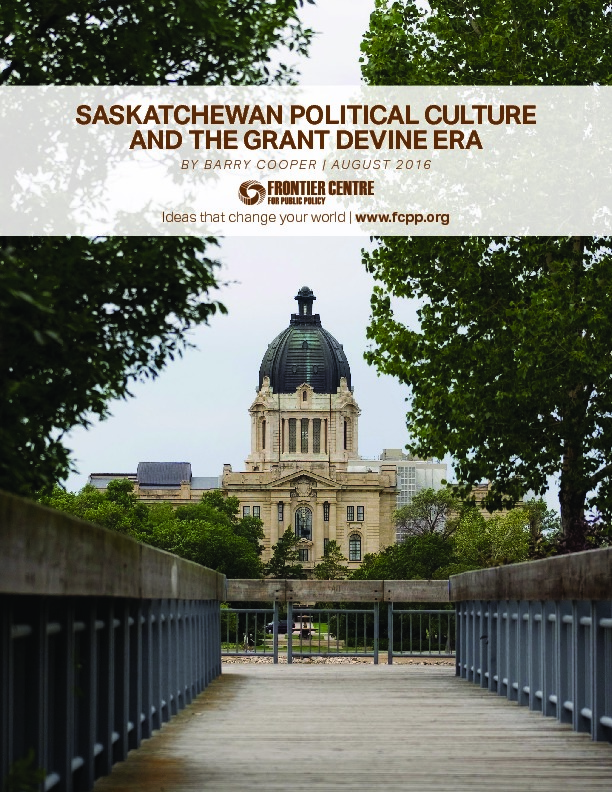Barry F. Cooper
This paper looks at the 1982 Saskatchewan provincial election, which brought Grant Devine to power, as a “critical election” in the sense that it had long-term consequences regarding what would subsequently be acceptable as public policy in that province. It argues that Devine’s two terms and the policies he introduced changed the political culture of Saskatchewan. By political culture is meant “a set of attitudes, beliefs and sentiments that give order and meaning to a political process,” and that “provide the underlying assumptions and rules that govern behavior in the political system.” The Devine government, like all governments, was not consistent. Nevertheless, it reinforced the foundational political myth of the province, the origins of which lay in the nineteenth century. Political cultures are, so to speak, embedded in myth. Myths provide context for historical events as political culture does for elections and for policies. The “foundational myth” of Saskatchewan, like that of Alberta, evoked “a place with boundless potential, where achievement was limited only by the imagination and dedication of those who came to claim their plot of farmland.” All commentators agree that Grant Devine lived within the Saskatchewan myth, even during times of distress. The early years of Saskatchewan sustained the Liberal party, which embodied the myth, on the one hand, but the province developed a political culture usually described as “machine politics,” akin in our day to the final years of the PC party in Alberta. The election of the CCF brought a new political culture aimed at the replacement of capitalism with a co-operative commonwealth. Again the political culture eventually changed from what S.M. Lipset called “agrarian socialism” to bureaucratic rule. Devine restored the original impetus of the foundational myth — “there is so much more we can be” was the PC slogan of 1986—but drastically reduced the role of the bureaucracy in the economy and political life of the province. The success of this new political culture is evident in the policies of his successors.



